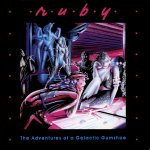Someone said something in class tonight that got me thinking. And the man who said this is mature, a junior high school teacher, and to all appearances reasonably intelligent. So I was mildly surprised and amused by what he said.
What he said was, "Music by Britney Spears really isn't that bad. In fact, it's rather good." For which he got some good-natured ribbing and comments that Britney Spears does not actually "make" her music. To which he replied, "No, she doesn't. What she is is a brand name. She is part of a product, and just like any other product, it can be good or bad. Yes, it's the engineers and technicians and song writers and choreographers and image makers behind her that do all the work, but they slap her name on the end product and that's what sells the records. It's no different than Madonna, or Paris Hilton, or even the Monkees."
Now Madonna I've got a grudging respect for. She wasn't much more than a Britney, perhaps, in the beginning of her career, but I think just by sheer longevity she has gone on to prove that not only can she create, she is also capable of reinventing herself as well as making some pretty canny business decisions. Paris Hilton. Pffh. I don't really know. I haven't bothered to listen. But I have my doubts about someone who gets on a label just because she's rich.
But the Monkees? My adorable Monkees? How dare he make such a comparison? Okay, so they were a "studio" band. So they never actually played their instruments. So they didn't write the songs. So what? They could sing. And they were cute and funny and made me laugh. In a good way. So *not* like Britney Spears.
His comment revealed one of my own prejudices: I have more respect for the Jewels and Sarahs and Toris of the world--musicians who truly create, live and breathe their own music-- than I do for these megastar "faces" on an industry product. Why should the struggling unknown musician, singing and playing in the corner of some cafe somewhere, seem more authentic to me than a Britney Spears? Because I do agree with him on one point. The product itself is an authentic creation through the group effort of creative people. Why do I give them less credit? Why do the works by these other musicians seem more "real"?
I think what it comes down to is what these "brand name" people have to bring to the table. I don't see Britney really working for her product. All she does is show up. If she were contributing something worthwhile-- hours of practice before she appears on national television, for example-- that might be something. If she took voice lessons, or songwriting, and contributed something to the creation of her product other than whining about her tabloid lifestyle, that might be something else entirely.
And then there's the fact that this "product" is so industry driven. They are playing to the Lowest Common Denominator, to the bottom line. They will produce whatever their market research says will make the most sales and rake in the most dough. I don't think that's coming from that "truly creative backwater" that Gibson was talking about.
Anyway, I'm going to go listen to the Monkees and meditate on "Another Pleasant Valley Sunday" and "Daydream Believer."
Subscribe to:
Post Comments (Atom)




1 comment:
OK. Here's a quiz question: Who wrote Daydream Believer? Answer later.
This Art vs Commerce discussion is as old as the hills. A lot of people decry the artists or groups that are reportedly "manufactured" or put together my the big, bad record company. Here's something to think about: The Jimi Hendrix Experience was just such a group. Hendrix is revered today as one of the all-time great rock guitarists. But at the start of his career his managers thought he couldn't make it with a white audience. His music and approach to guitar was too "out there" for the "black" radio. He was taken to England and put together with two hand-picked white musician just for broad audience appeal. Some of his early songs were chosen in the same way. Luckily the outcome was great. For more on this, read the excellent book: House Full of Mirrors.
PS - Answer: Neil Diamond
Post a Comment